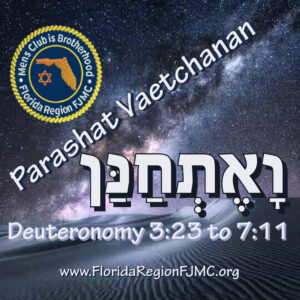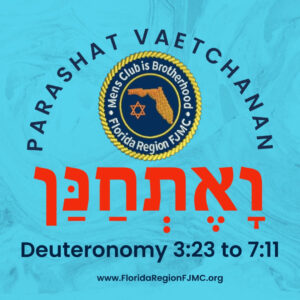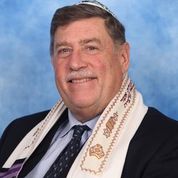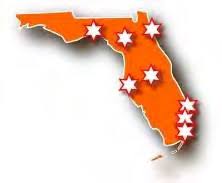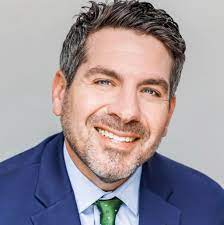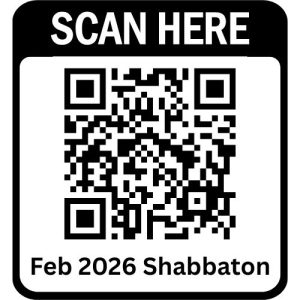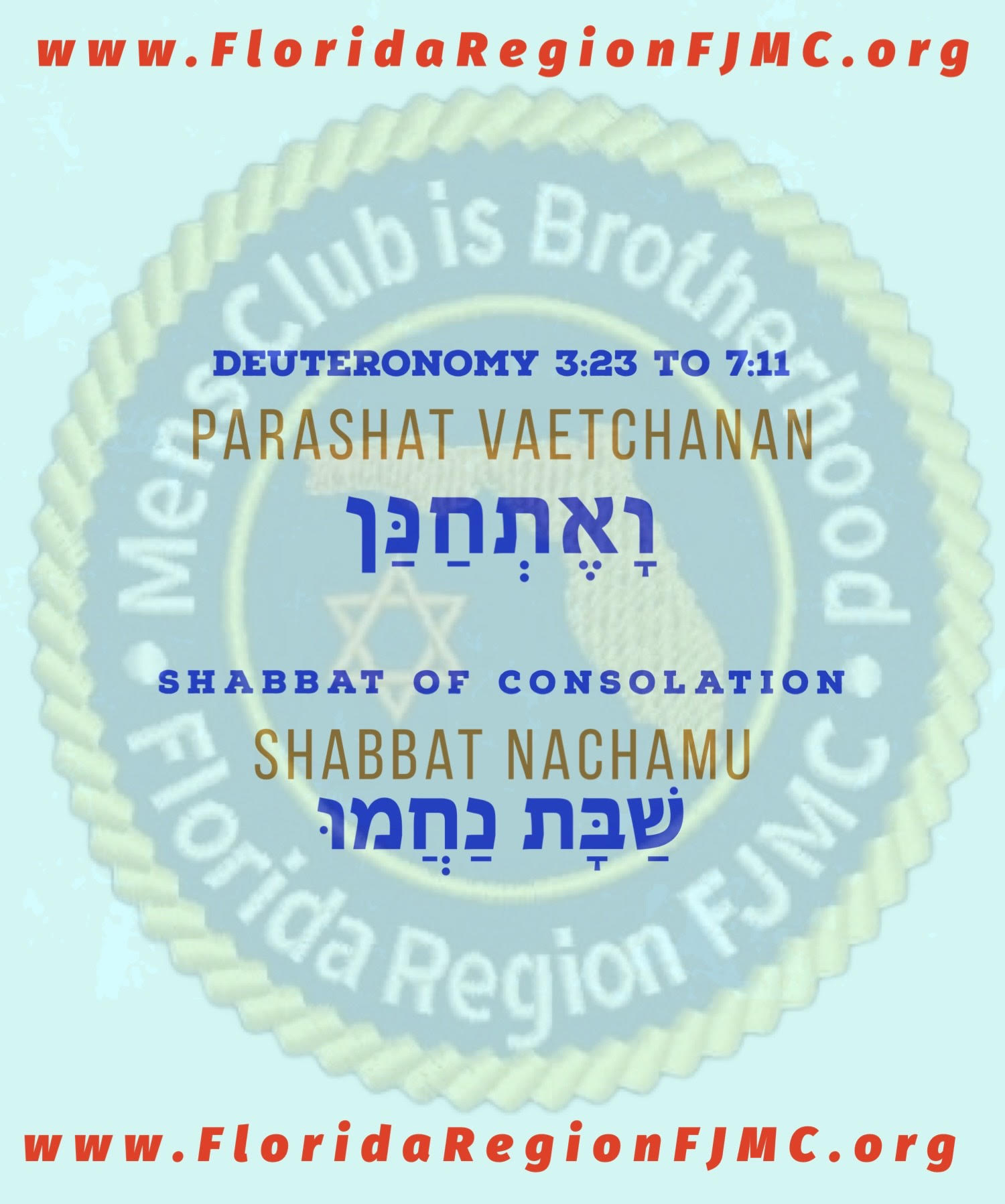
When you Choose Shabbat, you choose to learn that every Shabbat is different and special. This week I learned about Parashat Vaetchanan (וָאֶתְחַנַּן), the 45th weekly Torah portion in the annual cycle of Torah readings.
I also learned this week as known as Shabbat Nachamu (שבת חזון), the Haftarah read on the Shabbat immediately after Tisha B’Av. Shabbat Nachamu, “the Shabbat of Comforting”, takes its name from a haftarah from the Book of Isaiah (40:1 through 40:26) that speaks of “comforting” the Jewish people for their suffering. It is first of seven haftarahs of consolation that are read between Tisha B’Av and Rosh Hashanah.
According to Wikipedia, Vaetchanan (וָאֶתְחַנַּן), Deuteronomy 3:23 through 7:11, contains 7,343 Hebrew letters, 1,878 words, 122 verses and makes up 249 lines of the Torah scroll. Vaetchanan covers a lot of territory; it tell how Moses asked to see the Land of Israel and recounts setting up the Cities of Refuge; he recites the Ten Commandments and the Shema and gives instructions to the Israelites.
Rabbi Michael D Klein of Temple Torat Emet offers his insights on this week’s Torah reading, Vaetchanan:
“The Ten Commandments and the Shema are both contained in this week’s Sedra. What is Moses’ goal in including both of these crucial documents in one Torah Portion? Perhaps, we should focus on the opening words for an answer. “And I implored G-d at that time”. Why is Moses praying fervently to G-d after the military victory against the great kings, Sihon and Og? He loves Israel so much that he is willing to give up his leadership just to walk the length and breadth of the Land.
G-d answers Moses by telling him that his years on earth are near an end. He may see the Land from afar but may not cross over the Jordan. His mission is nearly fulfilled, but his reward in the world to come will be great. Moses realizes with great urgency that he must impart to the new generation the final lessons that Hashem wants him to share. So Moses, ever being the teacher, chooses the Ten Commandments and the Shema, two of the most important lessons which teach us to love G-d and keep G-d’s commandments.
Unlike Moses, most of us are not aware when our final days are approaching. However, the sense of urgency which Moses felt must reflect on everyone. It leads to some important questions about our priorities. Do we value the sacred over the material? Do we send the correct messages to our spouse and children through our words and deeds? Do we believe in G-d and spend our week praying and asking for spiritual guidance? Do we live our lives with hope for the future? Do we work toward bettering the world for ourselves and those near us? Moses leaves us with the Ten Commandments and the Shema to comfort us with G-d’s nearness but also because he is worried about future generations being connected to these values.
Shabbat Nachamu and Sedra Vaetchanan are a wake-up call for us to get our priorities right, not just for ourselves but by example for those who succeed us. As we approach the concluding weeks of 5783, let us focus on what matters most in our spiritual lives and help shed the burden of trivialities and materialism in order to secure a happier future for those we care about.
Questions for Discussion:
- Moses and other great Tzaddikim are buried outside of Israel. Why is this so?
- Why are certain words of the Ten Commandments not identical to the first recitation in Sedra Yitro? What does this suggest?
- Why did the Shema become a central theme in Judaism?
- Why is Moses so concerned about future generations based on his own experiences with Klal Yisroel?“
Rabbi Michael D. Klein attended Yeshiva College of South Florida and served as Torah Reader, Hebrew teacher, Chazzan and spiritual leader of various synagogues throughout South Florida. In January 2015 he became Ritual Director, Bnai/Bnot Mitzvah instructor and 7th grade Hebrew instructor for Temple Torat Emet of Boynton Beach. In October 2019 he was accepted into an accelerated track and received his shicha from Yeshiva Adath Wolkowisk and has been the Rabbinic leadership of Temple Torat Emet since August 2020. In September of 2022 he was appointed Rabbinic and Spiritual Advisor of the Florida Region of FJMC.
Choose Shabbat; choose to celebrate, to light candles, sing songs and learn a little Torah.
This moment of Jewish Learning is brought to you by the Florida Region of the Federation of Jewish Men’s Clubs (FJMC). We are part of a confederation of over 200 Jewish Men’s Clubs and Brotherhoods representing over 20,000 members across the United States, Canada, Latin America, and beyond. Learn more about how your Jewish Men’s Club or Brotherhood can affiliate with the FJMC at: https://www.fjmc.org/content/affiliating-fjmc.
The Florida Region of FJMC serves the needs of affiliated Men’s Clubs and Brotherhoods throughout the State of Florida. Get to know more about the FJMC Florida Region and our growing network of Jewish Men’s Clubs and Brotherhoods at www.floridaregionfjmc.org and please visit and LIKE our Florida Region FJMC Facebook Group at www.facebook.com/FloridaRegionFJMC.

